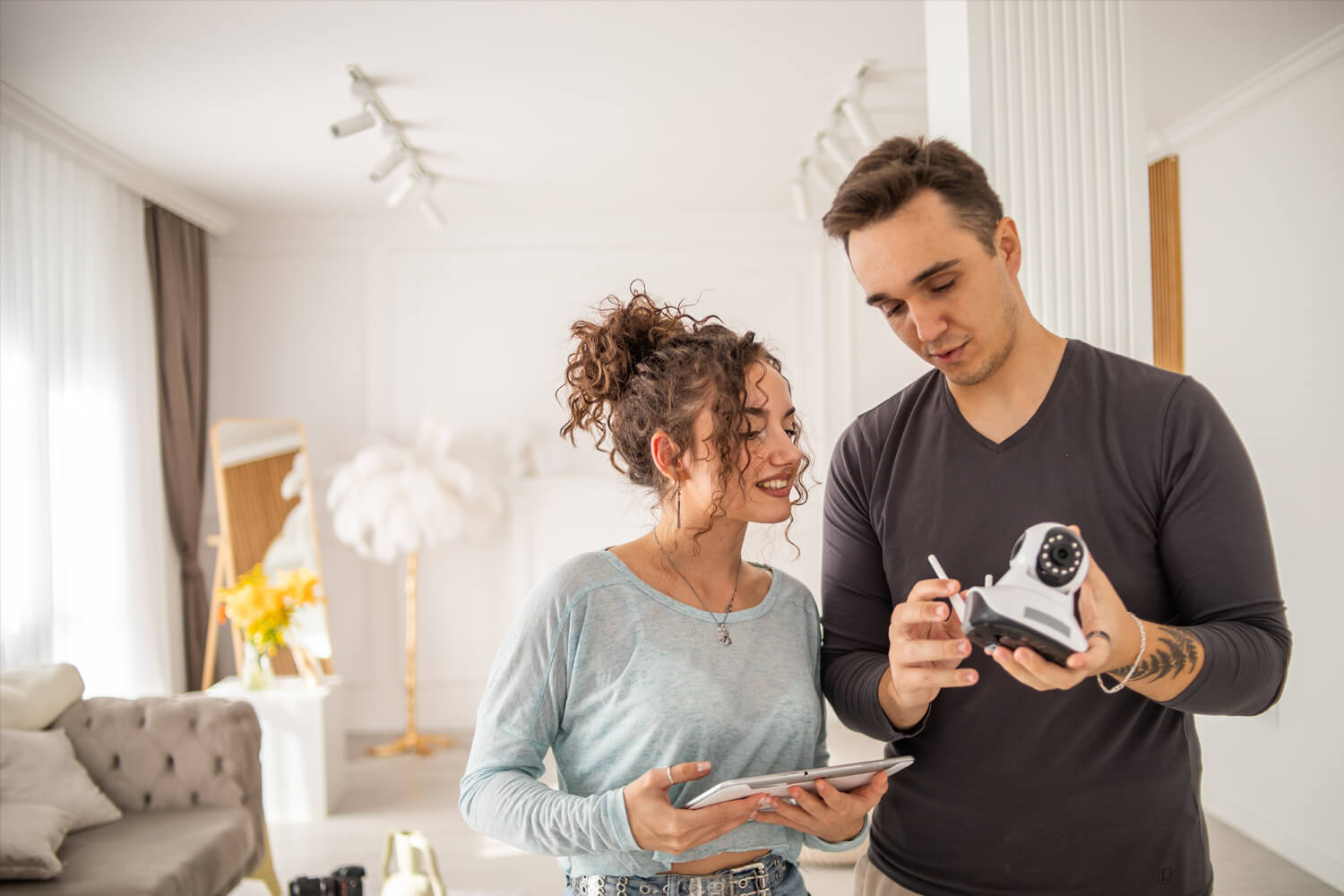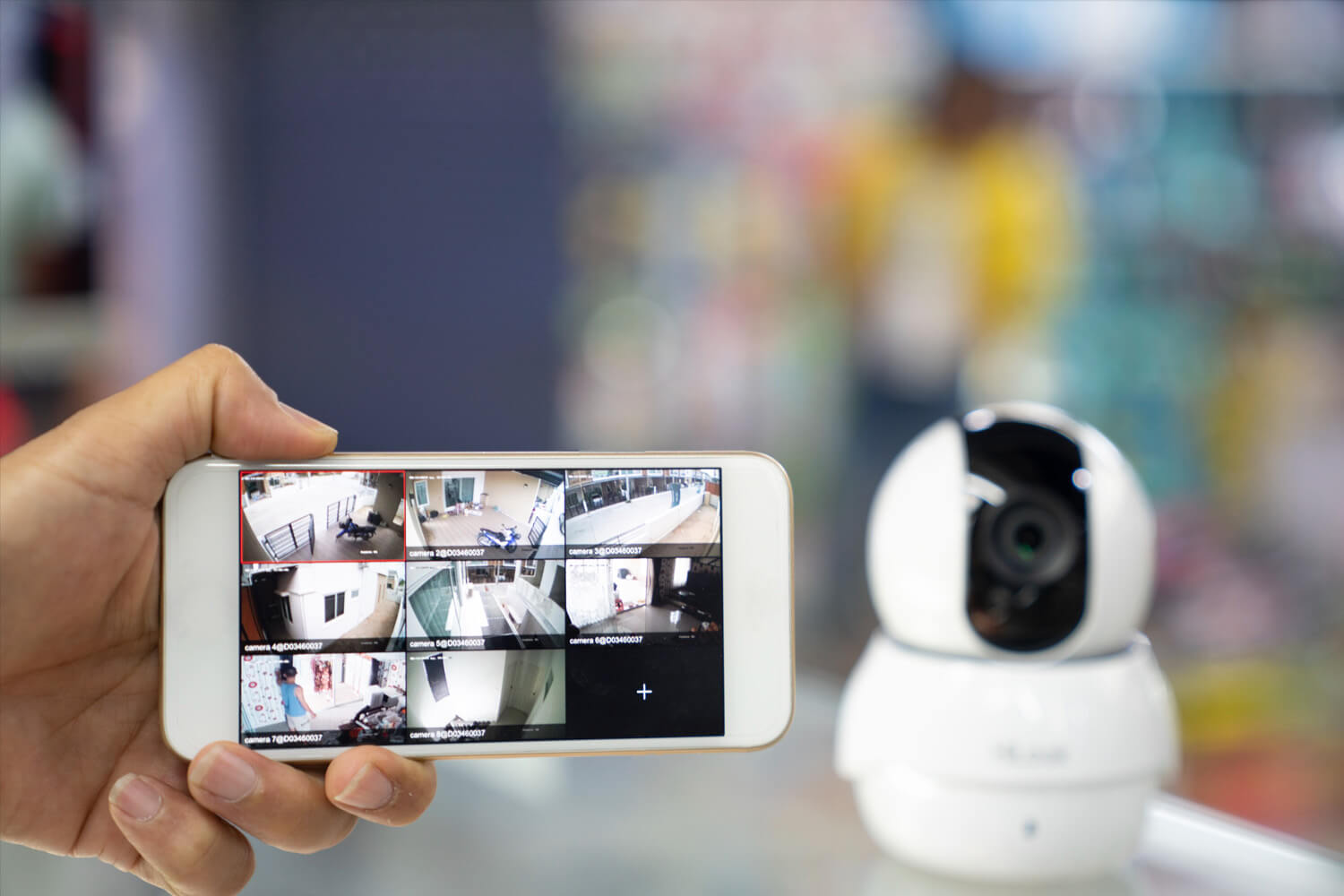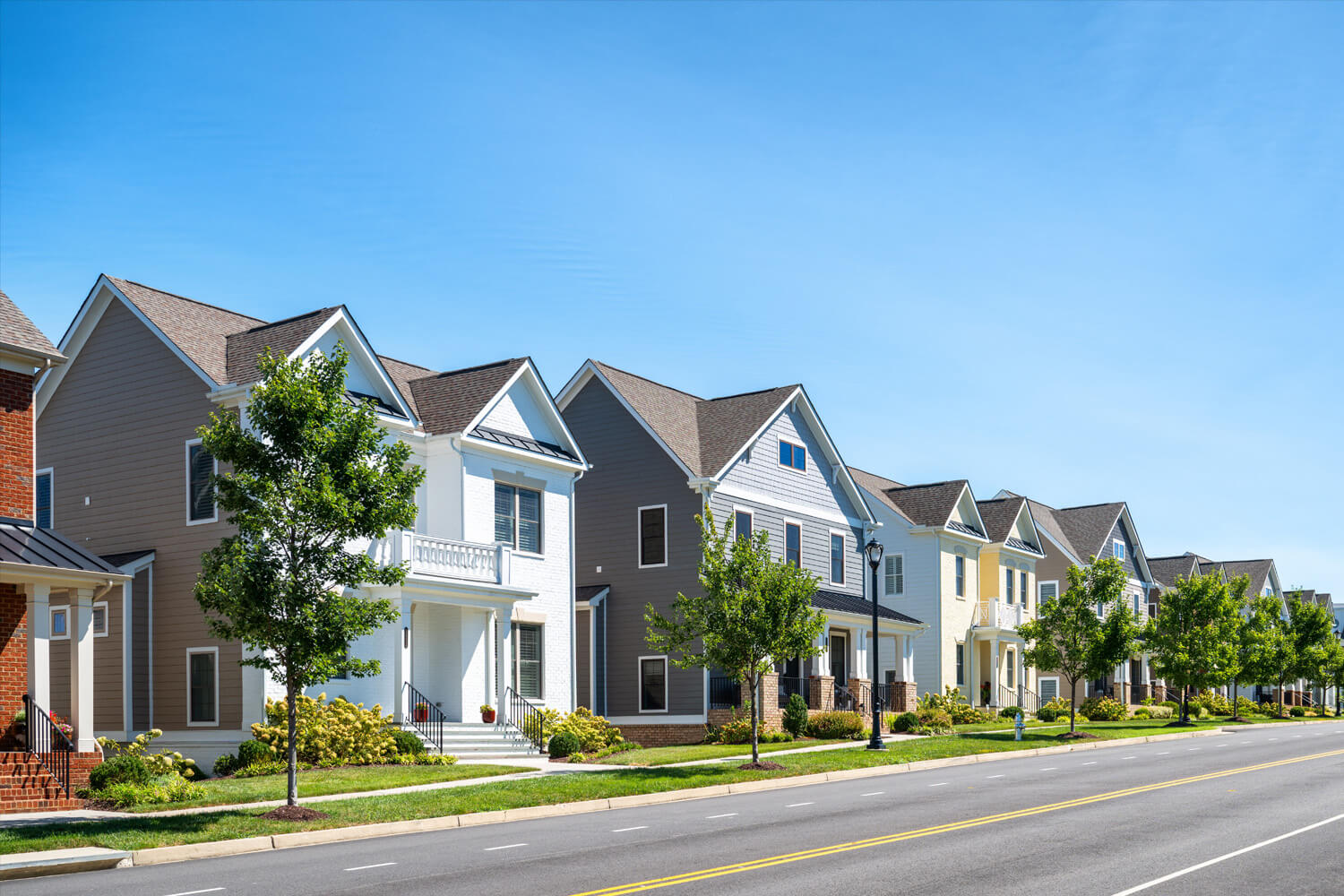Outdoor Home Surveillance Camera Laws

You come home to find your front door open and valuables missing. If only you had cameras to catch the thief! Many homeowners install outdoor security cameras for this exact reason: they want to protect their families and property.
But here's the problem. Most people don't know the laws on outdoor surveillance cameras for home use. They set up cameras without understanding what's legal and what's not.
Outdoor security cameras are more popular than ever. Ring doorbells, wireless cameras, and smart security systems fill store shelves. This growth raises important privacy questions. What can you record? Where can you point your cameras? When does home security cross the line into illegal surveillance?
This guide breaks down security cameras for home laws. We'll cover camera placement rules, privacy limits, and how to stay compliant. You'll learn what's considered illegal surveillance and how to protect your property the right way.
Don't worry - we'll make home video surveillance laws easy to understand. By the end, you'll know exactly what's legal and what could get you in trouble.

Are home security cameras legal?
Yes, home security cameras are legal. But there are important limits on where you can place them and what you can record. You have the right to monitor your own property. You can record what happens in your yard, driveway, and around your home. The key rule is simple: you can't invade your neighbors' reasonable expectation of privacy.
Think of it this way. If someone can see an area from a public street, you can probably record it too. But if an area is private - like inside someone's home - you can't record there.
State and local laws vary across the country. Some cities have stricter rules than others. Always check your local ordinances before installing cameras. What's legal in one place might not be legal in another.
Ben Farrow, a LegalShield provider lawyer with Anderson, Williams & Farrow, has this to say about surveillance camera laws:
“While security cameras are generally permissible for protecting one's property, they must not intrude upon areas where neighbors have a reasonable expectation of privacy, and they should not be used with the intent to harass or intimidate. Violations of these principles can lead to legal consequences, including civil actions or criminal charges, depending on the jurisdiction and specific facts of the case.”
As you can see from Ben’s insights above, it is wise to consult with a lawyer who knows about the security camera laws in your area.
Understanding security camera placement laws
Where you point your cameras matters a lot. The law treats public areas differently from private spaces.
Public areas include sidewalks, streets, and anything visible from public property. You can generally record these areas without issues.
Private spaces are different. These include the inside of homes, fenced backyards, and anywhere people expect privacy. Recording these areas without permission can get you in legal trouble.
Where security cameras are usually allowed
- Front yard and driveway - These areas are visible from the street.
- Porch and main entrances - You can monitor who comes to your door.
- Backyard - As long as you're not purposely aiming your camera into your neighbors' private areas.
- Around your home's perimeter - Stay focused on your own property (don’t specifically position your cameras into your neighbors’ backyards).
Where security cameras are not usually allowed
- Neighbors' windows - Never record inside someone else's home.
- Bathrooms or bedrooms - These are always private, even in your own home.
- Fenced yards belonging to others - Respect property boundaries.
- Areas where people change clothes - Like pool areas or fitting rooms.
Audio recording has stricter rules than video. Many states require consent from everyone being recorded. Some security camera placement laws treat sound recording like wiretapping. Be extra careful if your cameras record sound, and always ask a lawyer for guidance before buying or installing a camera that records audio.

What is considered illegal surveillance?
Illegal surveillance happens when you record people without proper authority or in private settings. Understanding what crosses the line helps you avoid legal problems.
Illegal surveillance includes recording private conversations without everyone’s consent. Hidden cameras in bathrooms or bedrooms are another illegal way to record, even in your own home if guests use those areas. Never deliberately target a neighbor’s home or private property with your camera, and don’t use your recording device to harass or intimidate others.
Federal and state wiretapping laws are strict about audio recording. These laws often require "two-party consent." This means everyone in a conversation must agree to be recorded. Video-only recording usually has fewer restrictions.
The intent behind your cameras matters too. Installing cameras for legitimate security is different from using them to spy on others. Courts look at why you placed cameras and what you're recording.
Just because you can see something doesn't mean you can legally record it. Laws on security cameras on private property focus on reasonable expectations of privacy.
How can surveillance cameras violate the right to privacy?
Cameras violate privacy when they record areas where people expect to be private. The legal standard is called "reasonable expectation of privacy."
This standard asks a simple question: Would a reasonable person expect privacy in this location? If yes, you probably can't record there legally.
Areas with NO expectation of privacy
- Front porches and yards visible from the street
- Driveways and walkways
- Public sidewalks and roads
- Common areas in apartment complexes
Areas WITH expectation of privacy
- Inside homes (unless it is a community space in your own home)
- Bathrooms and bedrooms
- Fenced backyards not visible from public areas
- Private conversations in enclosed spaces
The law tries to balance two important rights. Homeowners should be able to protect their property. But everyone deserves privacy in their personal spaces.
Is it okay to have security cameras outside your house?
Yes, it's perfectly fine to have security cameras outside your house. The key is keeping them aimed at your own property.
Good camera placement includes covering your driveway, watching walkways and entrances, protecting porches and patios, and monitoring your yard perimeter. Cameras in these areas help you keep an eye on who comes and goes, keep package thieves away, and catch trespassers early if they enter your property.
Smart homeowners use cameras for legitimate security purposes. They want to protect their families and belongings. This is completely legal and encouraged.
Keep your cameras focused on areas you own or control. Angle them to avoid neighbors' windows and private spaces. When in doubt, adjust the camera view to stay clearly on your property.

Do you have to tell people you have a security camera?
Usually, you don't need to announce video cameras recording public areas. But audio recording often requires notice or consent. The rules depend on where you live and what you're recording. Some states have stricter notification requirements than others. Home video surveillance laws vary significantly across the country, so talk to a lawyer in your area to learn the specifics.
In general, your best practice is to post clear signs saying "This property is under video surveillance." Signs help prevent disputes with neighbors and meet local requirements if your area mandates notice. It also helps to deter criminals if they see a sign and a security system in place.
For audio recording, err on the side of caution. Many states require everyone's consent to record conversations. Even if your cameras have microphones, consider turning off audio recording to avoid legal issues.
Signs are cheap insurance. They cost little but can prevent big legal headaches later. Most security companies include warning signs with camera systems.
How can I stop my neighbor's camera from pointing at my house?
If your neighbor's camera bothers you, you have several options. Start with the simplest approach first.
Talk to your neighbor directly. Many camera disputes resolve with friendly conversation. Your neighbor might not realize their camera records your property. They may be willing to adjust the angle or add privacy filters.
Install privacy screens or landscaping. You can block cameras on your own property. Install fences, plant hedges, or add screens. This gives you privacy without involving authorities.
Report to HOA or local authorities if the problem continues. Some areas have laws about what cameras can record. If your neighbor clearly violates privacy laws, file a complaint.
Consider legal action only for serious privacy violations. If cameras record inside your windows or private areas, you may have grounds for legal action. This should be a last resort after other methods fail.
Remember: neighbors can record areas visible from public streets. They can't record your private areas like inside your home. The law protects legitimate security use while preventing voyeurism.
Ben Farrow offers this wisdom about dealing with your neighbor’s intrusive security camera:
“Your legal options may include filing a civil lawsuit for invasion of privacy, seeking injunctive relief to remove the camera, or invoking specific state statutes that address unauthorized surveillance. The specific course of action will depend on the jurisdiction and the facts of your case, such as the intent behind the camera placement and whether it captures areas where you have a reasonable expectation of privacy.”
Privacy laws regarding security cameras on private property
Understanding the legal framework helps you stay compliant with security camera laws.
Federal laws set basic privacy standards. The Fourth Amendment protects against unreasonable searches. Federal wiretapping laws control audio recording. But most camera regulation happens at state and local levels.
State and local laws vary widely. Some states have detailed camera regulations. Others rely on general privacy laws. Many cities have their own ordinances about surveillance cameras.
Homeowner rights
Homeowner rights on private property are broad but not unlimited. You can generally monitor your own property freely. You can record areas visible from public spaces. But you can't use this right to invade others' privacy.
Single-family homes typically have the most camera freedom. Apartments and condos may have homeowner association rules limiting camera placement. Always check community guidelines before installing security systems.
Landlord/tenant rights
Rental properties have special rules. Tenants may need landlord permission to install cameras. Landlords usually can't put cameras in private areas like bedrooms or bathrooms. Check your lease agreement and local tenant laws.
What is considered illegal surveillance varies by location. Research your local laws or consult with legal professionals when unsure.

Staying compliant with home surveillance camera laws
By following security camera placement laws, you can protect your family and property while staying compliant. Smart homeowners research their local rules and place cameras thoughtfully.
When legal questions arise about your security cameras, having professional guidance makes all the difference. LegalShield Members get access to experienced lawyers who understand home surveillance laws. Whether you need advice on laws in your area, neighbor disputes, or privacy rights, LegalShield provides the legal support you need.
Ready to protect your home AND your legal rights? Visit LegalShield.com today to learn how our legal plans give you peace of mind with affordable access to quality legal assistance.
Ben Farrow started working at the Anderson, Williams, & Farrow, LLC in 1992 and has been the supervising attorney since 2003. He became a partner in 2006. He is licensed in Louisiana, Alabama and Mississippi and maintains an active docket in all three states. He speaks at Super Saturdays, oversees Associate events for the firm and leads the Estate Planning Webinars and live events. He also provides advice and counsel to LegalShield Members every day.
LegalShield is a trademark of Pre-Paid Legal Services, Inc. (“LegalShield”). LegalShield provides this blog as a public service and for general information only. The information made available in this blog is meant to provide general information and is not intended to provide legal advice, render an opinion, or provide a recommendation as to a specific matter. The blog post is not a substitute for competent legal counsel from a licensed professional lawyer in the state or province where your legal issues exist, and you should seek legal counsel for your specific legal matter. All information by authors is accepted in good faith. However, LegalShield makes no representation or warranty of any kind, express or implied, regarding the accuracy, adequacy, validity, reliability, availability, or completeness of such information. The materials contained herein are not regularly updated and may not reflect the most current legal information. No person should either act or refrain from acting on the basis of anything contained on this website. Nothing on this blog is meant to, or does, create an attorney-client relationship with any reader or user. An attorney-client relationship may be formed only after the execution of an engagement letter with an attorney and after that attorney has confirmed that no conflicts of interest exist. Nothing on this website, or information contained or transmitted by this website, is intended to be an advertisement or solicitation. Information contained in the blog may be provided by authors who could be a third-party paid contributor. LegalShield provides access to legal services offered by a network of provider law firms to LegalShield members through membership-based participation. LegalShield is not a law firm, and its officers, employees or sales associates do not directly or indirectly provide legal services, representation, or advice.


